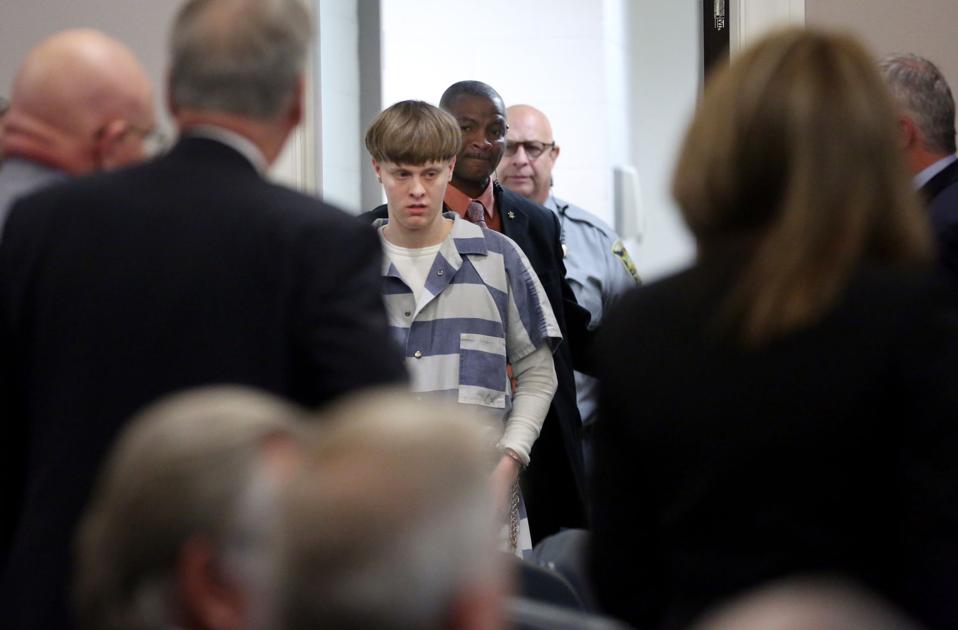In South Carolina and across the country, there is an increased demand for mental health services. For those facing criminal charges who need evaluation and treatment, that demand is growing harder to meet.
A person with mental health issues in the criminal justice system is often dependent on state resources to ensure a fair ruling. But as requests for psychiatric evaluations and treatment grow, so does the cost, and the system that protects such defendants is, at times, overburdened.
With the COVID-19 pandemic shrinking state revenue and delaying court cases, wait times for treatment are longer than ever and will likely see long-term impact.
These services can make the difference in life or death for some defendants, along with preventing the incarceration of the severely mentally ill.
A substantial portion of defendants need such evaluation and treatment to ensure both their safety and the safety of those around them. According to a 2017 report from the U.S. Department of Justice, 37 percent of prisoners and 44 percent of jail inmates surveyed said they had been diagnosed with a mental health disorder.
State law requires that when there are doubts about a person’s ability to stand trial or whether a defendant can be held criminally responsible for an act, the court must order a psychiatric evaluation. Attorneys can also get a private evaluation.
A stressed system
Court-ordered evaluations are conducted by the S.C. Department of Mental Health’s Forensic Evaluation System, though many cases in the Lowcountry are contracted out to the Medical University of South Carolina.
The agency faces requests for more and more evaluations each year. In 2015, MUSC and the Department of Mental Health conducted 919 court-ordered psychiatric evaluations. By 2019, they were completing 1,159.
Part of that increase is due to South Carolina being a fast-growing state, said Mark Binkley, senior executive assistant to the state director of the Mental Health Department. More people equals more crime.
There’s also more awareness now that mental health issues are a significant problem for those facing criminal charges, as the court system becomes more sensitive to how mental conditions can affect a person’s understanding of a crime and its adjudication.
Still, the increase has produced a stress on the system. The employees responsible for these evaluations are highly trained and are “in scarce supply and high demand,” Binkley said. Some years, the department has faced difficulty keeping all the positions filled, which around 20 years ago led to the contract with MUSC to divide the workload.
An even larger concern comes with the falling state revenue because of the pandemic. State officials have already indicated there won’t be much, if any, new funding for the department this year, Binkley said.
Much of the new money the Department of Mental Health was requesting is for mandated services, which includes evaluation and treatment for those facing criminal charges. In order to fund those services, if faced with a budget shortage, the department may have to pull some funding from general community treatment. A similar situation happened during the 2007 recession.
Beyond budgetary concerns, however, “the evaluation process has not been seriously affected,” Binkley said. Many have been done virtually.
Overall, they’ve had fewer evaluations to conduct because of court slowdowns.
What the pandemic has affected most is the department’s ability to admit patients facing criminal charges, many of whom are incarcerated. They must take all those patients, but the state’s facility, the G. Werber Brian Psychiatric Hospital in Columbia, has only 215 secure forensic beds, and the waitlist has been getting longer due to COVID-19.
The facility had a coronavirus outbreak earlier this year, where 54 patients contracted the virus and two died. During the outbreak, they had to stop admissions entirely. In late September, they opened an alternative care site that has 25 beds in order to lessen the wait time.
According to Binkley, their goal is that patients wait under 30 days to be admitted. For the past two years, they haven’t met that goal. Binkley estimates it’s been more in the range of two months wait time.
“It was not acceptable to us,” he said. And during COVID-19, the wait time has ballooned even further and is “way, way up,” he said.
Just like the number of evaluations has increased year by year, so has the number of people admitted to the secure facility. In 2015, 173 people were admitted. In 2019, 258 patients needed treatment there.
Patients may spend a few weeks in the facility, and in some cases years.
Around 20 percent of seriously mentally ill people have substance use disorders, Binkley said, and that’s usually the subset that comes into contact with law enforcement. Treating both conditions is a “tough combination,” Binkley said.
A right to treatment
In the past few years, MUSC has conducted around 300 evaluations of defendants per year.
“We don’t judge anything, we state our opinions,” said Dr. Diana Mullis, clinical director of outpatient services.
Evaluators don’t consider the alleged crime itself and whether the defendant committed it. “Guilt or innocence is to be determined by the court,” Mullis said.
In the case of Timothy Jones Jr., the Lexington man convicted of killing his five children, a psychiatrist was brought in to determine whether Jones’ insanity plea was legitimate. His defense, and his family, claimed that Jones had schizophrenia and was delusional.
During closing arguments in the trial of Timothy Jones Jr., 11th Circuit Solicitor Rick Hubbard scratches out “Guilty but Mentally Ill’ from jurors’ options. File/Jeff Blake/The State/pool
While the psychiatrist diagnosed Jones with a substance-induced psychotic disorder, he didn’t find evidence of schizophrenia. His opinion was that Jones knew his actions were legally and morally wrong at the time he committed them.
The trial continued, and Jones was sentenced to death.
Mullis often tells her staff that evaluations of people with criminal charges are among their most important duties. It can make the difference in whether or not a trial is fair, she said.
Ensuring a fair trial
Sometimes it’s possible to have more than one evaluation of a defendant, but usually only in capital offenses.
In the case of Dylann Roof, the white supremacist who killed nine Black worshippers at Emanuel AME Church in 2015, one court-ordered evaluation found him competent to stand trial and conduct his own defense. The physician determined it was Roof’s racist ideology and not a mental illness that sparked the mass shooting.
Another evaluation found that Roof was predisposed to schizophrenia-spectrum and autism-spectrum disorders, and that his ideology could have been a sign of a psychotic disorder.
Roof denied that he was mentally ill during the penalty phase of his trial, against the advice of his attorneys, who were hoping he could avoid the death sentence. A day after his conviction, Roof sent a handwritten note to U.S. District Judge Richard Gergel, saying, “I, Dylann Roof, withdraw the notice relating to presenting mental health mitigation through expert testimony. I will not be calling mental health experts or presenting mental health evidence.”
The court agreed with the evaluation that he was capable of continuing with the trial, and allowed him to represent himself. Roof was sentenced to death.
In an appeal to that sentence filed in February, Roof’s lawyers argued the two mental health evaluations were not created equal, saying that one expert, who believed he could have a psychotic disorder, spent a month evaluating him, while the other expert had only eight days to review Roof’s case.
To evaluate if someone is competent to stand trial, a physician looks at the individual’s past treatment records, arrest warrants and other documentation. Then, two examiners interview the defendant. The evaluation must be completed within 30 days.
Examiners seek to determine whether a defendant has both a factual and rational understanding of what’s happening. They ask questions about the facts of the legal process, such as, “What does a judge or jury do? What is evidence?” Examiners also want to see if a defendant can make decisions in his or her own best interest. For example, they may ask, “Should you meet with the prosecutor without your attorney present?”
Alternative resources
Some mental health experts work to divert those with mental health issues away from the justice system.
The Mental Health Department funds a mobile crisis response unit and embeds 11 mental health clinicians with law enforcement around the state. Clinicians work with police in Charleston, North Charleston, Summerville, Goose Creek, Lexington and Newberry. There are also clinicians embedded with sheriff’s offices in Charleston, Dorchester, Richland, Newberry and Berkeley counties.
Seven counties also have mental health courts, where non-violent, low-level offenders can receive treatment for a year while still attending court appointments.
Aiken, Berkeley, Charleston, Greenville, Horry, Richland and York counties all have such courts up and running. Three more counties are planning to set one up: Anderson, Orangeburg and Spartanburg.
Allison Farrell, who directs the Department of Mental Health’s office of emergency services, said funding can be a challenge for this kind of justice-involved programming.
One way Farrell hopes that those with mental health issues can avoid unnecessary trips to the emergency room or jails is the mobile crisis unit, which operates 24 hours a day year-round.
The unit provides a number for residents to call if someone is in a mental health crisis. If the situation can’t be deescalated by clinicians over the phone, a team of two clinicians will respond with law enforcement in under 60 minutes, Farrell said.
There are 16 community mental health centers across the state, and 32 clinicians should be on call at any given time, according to Farrell.
Initiatives such as mental health courts and the mobile crisis units can save money by keeping patients out of the justice system, along with providing treatment to those for whom incarceration could worsen their mental conditions.
“We need these programs,” Farrell said. “It’s not only of benefit to the individual, but to the system as a whole.”















